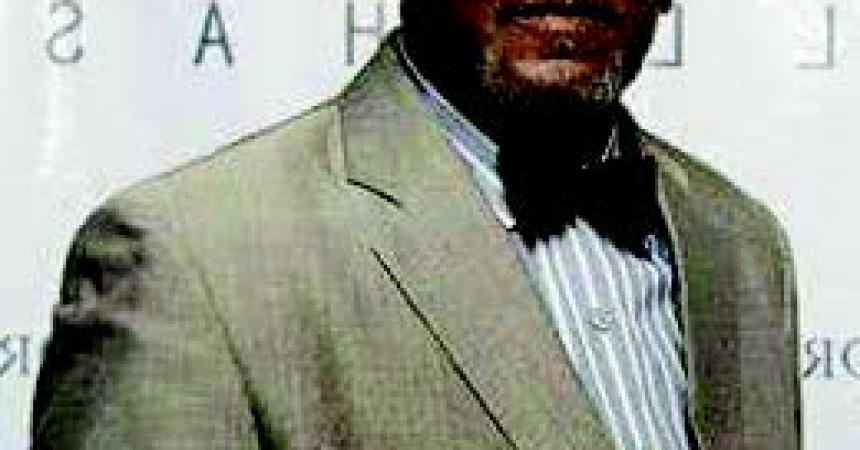
CIVIL RIGHTS ADVOCATE OF THE YEAR
Landry works as a quiet force within NAACP

Dale Landry has spent almost two decades as a member of the NAACP, doing mostly investigative work for the organization.
Photo special to the Outlook
By St. Clair Murraine
Outlook staff writer
When The O.J. Simpson team wanted to investigate detective Mark Furhman’s discovery of the now famous glove in the high-profile murder case, Simpson’s defense attorneys called on Dale Landry and a partner.
Years prior when the Army had concerns about soldiers smuggling goods to Germany, Landry, a police in the Army at the time, was part of the investigative team, too. He also was a part of the team looking into how to prevent Klu Klux Klan members and other hate–crime groups from infiltrating the military.
All that was part of the set up that led to Landry becoming an integral part of the National Association for the Advancement of Colored People organization. He now serves as president of the north Florida area that stretches from Pensacola to Lake City.
Since joining the NAACP in 2002, he has been a tireless contributor to the civil rights organization, according to those who know him. Most of his work has been investigative in nature, said Adora Obi Nweze, president of the NAAC’s Florida branch.
“He makes that sacrifice; both financially and personally,” Obi Nweze said. “He has very little time he can call his own because he is always moving and doing. He is an outstanding leader and energetic activist.”
The commitment that Landry has shown to the organization’s causes over the last 15 years made him an easy choice for the Civil Rights Advocate of the Year honor given by the Capital Outlook.
The experience that Landry brings to the NAACP comes from his 21 years of police work in the Army. He began his career at Tindal Air Force Base immediately after graduating from Bay High School in 1973.
Landry, 61, who grew up in Panama City during an era of segregation, said he followed the teachings of Malcolm X and the Black Liberation Army for awhile. He later decided that the militant style of the BLC’s approach in fighting injustices wasn’t effective and eventually led him to join the NAACP.
“We’ve got to be able to stand up and look it in the face and call truth the truth,” he said, explaining his decision. “We’ve got to also be able to stand up for those who can’t stand up for themselves.”
Landry got his first major call to do investigative work for the NAACP when the organization’s former president Charles Evans encouraged him to join a review committee led by Rev. AJ Richardson. The committee’s task was to stop a proposal for building more prisons in Leon County.
Landry has also worked on several other committees within the NAACP, including one that monitors criminal justice laws in the state’s legislature.
For most of the past 20 years, Landry has been on a mission to reduce and eventually eliminate what he calls a pipeline “from school house to jailhouse.”
“I’m not going to do anything other than working to help tomorrow,” he said. “I call tomorrow our children.”
He currently heads up a restorative justice program at Griffin Middle School, which is intended to help communities assist in the prevention of young people from becoming a statistic in the criminal justice system.
heads up a restorative justice program at Griffin Middle School, which is intended to help communities assist in the prevention of young people from becoming a statistic in the criminal justice system.
“In our system of justice the community has no involvement,” Landry said. “You answer to the state; not the community and when somebody answers to the state, the state punishes you in absence of the community. The community doesn’t know what you’re doing so it’s not a surprise that when folks come back they are committing crimes.”
Landry’s work for restorative justice began long before the recently initiated program at Griffin Middle School. After working with the Simpson case in 1994, Landry did a brief stint as an inspector with the Department of Juvenile Justice. He’d spend time working with the development of two other youth justice programs, including the defunct Neighborhood Justice Center.
Obi Nweze described Landry as one who is tireless in his effort.
“Sleep is an enemy of the movement,” she said. “When you go to sleep there is a problem going on. Dale understands that so he is always ready to jump and move. There is no downtime. That just doesn’t happen.”







